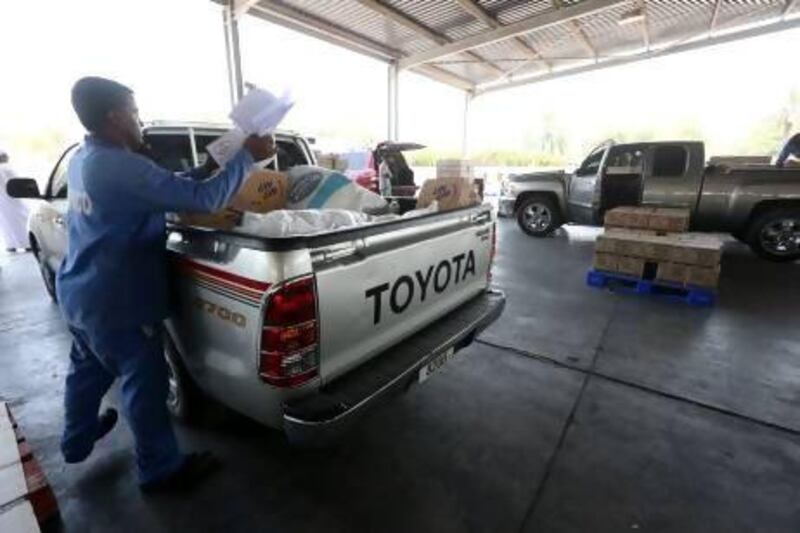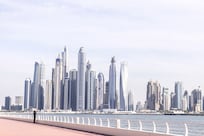ABU DHABI // Emiratis queued to collect subsidised food supplies for Ramadan from the municipality yesterday.
The civic body recently announced it would add Arabian coffee, milk, salt, cardamom seeds and tea to its list of subsidised foods.
This brings the total number of subsidised commodities available to 31 on a list that also includes water, juice, dates, olive oil and harees.
Some items have been made cheaper than usual for Ramadan.
"We have contracts with companies to sell select items for lower than the market price," said Saif Al Rumaithi, head of the food distribution centres in Abu Dhabi.
"For example, a carton of water might ordinarily cost Dh11, but we sell them for Dh10. Rice can be more than 50 per cent cheaper during Ramadan.
"In Ramadan, a 40-kilogram sack of basmati rice can cost up to Dh260; we set it here at Dh120."
The municipality provides subsidised food to Emiratis from Abu Dhabi and those from other emirates who are permanent residents of Abu Dhabi.
There are nearly 45,000 municipality card holders in the capital, excluding Al Ain and the Western Region.
Mr Al Rumaithi said the municipality's two distribution centres had provided supplies to 6,000 families in the first four days of July, meaning a total of 230 people were served an hour at the centres.
Many of these were stocking up for Ramadan, he said.
A driver, Atiq Ur Rahman, queued for two hours before collecting rice, juice and oil for his employer's family, using their municipality card.
To claim the subsidies, citizens must apply for a municipality card, presenting their family books and other relevant documents such as rent contracts and school enrolment certificates.
Cardholders may then buy food from any of Abu Dhabi's 13 municipality centres.
The body introduced a digital system in 2011 that allows citizens to buy subsidised items using a machine, rather than through a customer service agent.
The machine reads a barcode from the municipality card and then lists how many items the cardholder can buy, based on the size of their family.
They can then pay with a credit card before taking their receipt to Al Muroor or Al Mussaffah distribution centres to collect their goods.
Families used to have to buy and collect all of the items once a month, but they may now collect on more than one trip if they wish.
This Ramadan, families may collect for June and July at once, meaning they can buy more at once if they have not already done so.
Security guard Mohamed Al Haj, who works at Al Muroor centre, said it was always at its busiest during Ramadan.
The municipality hopes to open new distribution centres in Al Wathba and Al Shahama soon.
Mr Al Rumaithi said it was also looking at placing the purchase machines in petrol stations.
There were more than 110,000 food transactions made through the municipality in the first five months of this year.
The body distributed 154,000 bags of basmati rice, 200,000 bottles of Al Ain water and 130,000 cartons of juice.
"Our strategy is to keep the same prices all year," said Mr Al Rumaithi.
"Three or five years in the future, the prices will still be the same. It doesn't matter whether prices are high or low outside.
"Sometimes we'll buy rice for Dh300 and still sell it for Dh120 to locals."
The municipality only caters to Abu Dhabi, Al Ain and the Western region.
But the Sheikh Khalifa bin Zayed Humanitarian Foundation has plans to open similar subsidy centres in all emirates after the President, Sheikh Khalifa, ordered the move last year.






